Ever wondered about skipping work for ceremonies?
Curious about Balinese beliefs in spirits? Questions about polygamy or
post-divorce arrangements?
Get ready to uncover the top ten intriguing queries
about the Balinese!

1. How do Balinese women manage to carry offering
baskets on their heads while riding bikes?
Balancing baskets on the head while riding a bike
is not that different to walking with them atop. It requires maintaining
balance and steadiness, especially when moving at speed. That's why you're
unlikely to spot a Balinese woman racing at high speed with a basket on her
head. Mounting the basket usually requires assistance, whether travelling by
foot or by bike.
2. Do Balinese people enjoy Western food? What are
their favourites? What's considered strange?
While elderly individuals from remote villages may
find Western food unpalatable, younger generations, particularly those raised
in areas like Kuta, have developed a taste for dishes like pizza and pasta.
However, Balinese cuisine often puts its unique
spin on these Western favourites to better suit local preferences. For
instance, pizzas served at numerous pizza shops in Bali feature sweet dough and
are accompanied by condiments like mayonnaise, ketchup, and chilli sauce.
Western fast-food chains such as McDonald's, KFC,
and Burger King have also adjusted their menus to cater to local tastes on the
island. It's not unusual to find these establishments offering meals with rice,
which is the staple food of Indonesia.
One of the quirkiest aspects of Western food,
according to the Balinese, is its lack of chilli. For them, a meal just doesn't
taste as satisfying without the fiery kick of this beloved spice.

3. Do Balinese people believe in spirits? Share a
mystical experience.
Yes, in Balinese culture, spirits are believed to
exist, and it is customary to communicate with them.
For instance, when a child is born, the Balinese
seek the guidance of a special priest who acts as a medium between the earthly
realm and the spiritual world. During this ritual, the priest calls upon the
ancestors of the family, who reveal the child's reincarnation and even suggest
a name.
According to Balinese beliefs, spirits primarily
reside in temples, and disturbing them is considered dangerous.
A young Balinese man shared a mystifying experience
where he urinated on a temple from the window of his second-floor room,
directly above the temple. The following day, he fell severely ill and, in his
delirium, claimed to have encountered the spirit of the temple—a woman— who
told him that he now has the responsibility to look after the temple. As soon
as he agreed, the mysterious illness inexplicably varnished.
4. Is it true that a ceremony is a good reason not
to go to work?
Yes, Indonesian law protects employees' rights to
attend religious ceremonies. Furthermore, employers are required to pay wages
when their employees cannot work because they are fulfilling religious duties
prescribed by their religion. Employers failing to accommodate this may face
legal consequences, including imprisonment and fines.
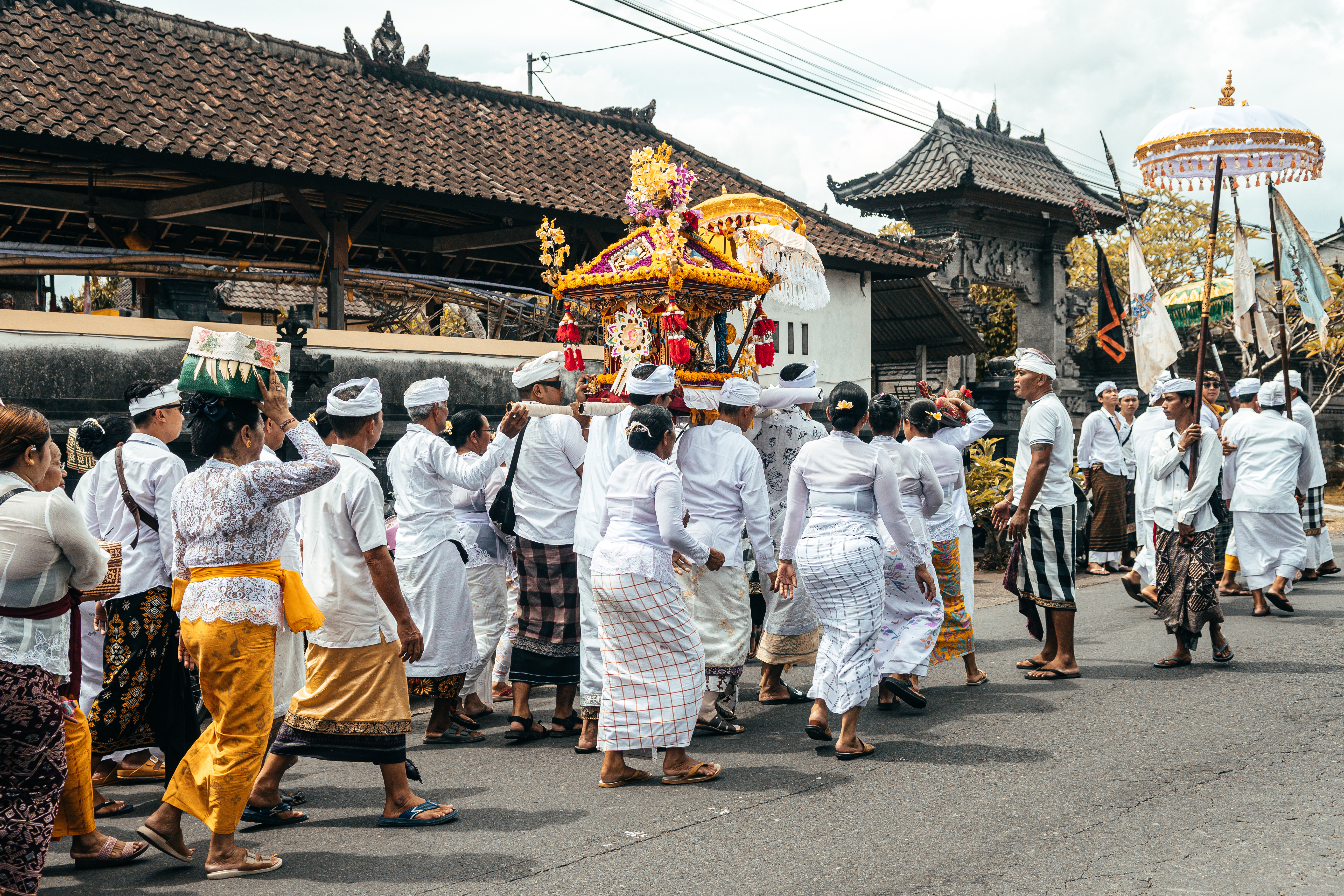
5. How do Balinese people treat illnesses?
While traditional herbs are available, most people
rely on modern healthcare.
However, in instances of prolonged illness, some
may seek the guidance of traditional priests. These priests may administer
prayers, recommend adjustments to the family compound (you can think of it as a
Balinese version of feng shui), prescribe specific rituals, or procure holy
water from sacred sites.
6. Do Balinese people decide for themselves whom to
marry, or do parents make this choice for them?
Marriage is a personal choice for the
Balinese.
While in certain remote villages, limited exposure
to outsiders can sometimes result in marriages between distant relatives, this
is very rare.
Marrying someone from a different religion is also
possible, but it can pose challenges. For example, a woman from a
non-Hindu background may find it difficult to make offerings or participate in
ceremonies. In such cases, additional effort is required in helping the spouse
adapt to and respect the Balinese traditions.

7. At what age do Balinese people typically marry?
Do they live with their parents?
The Balinese tend to marry relatively early. In
contemporary times couples tie the knots typically in the mid-20s, though
historically it could occur much earlier. The early marriage tradition means
that some individuals in their 40s may find themselves becoming parents to a
late child and grandparents to the children of their firstborn at the same
time.
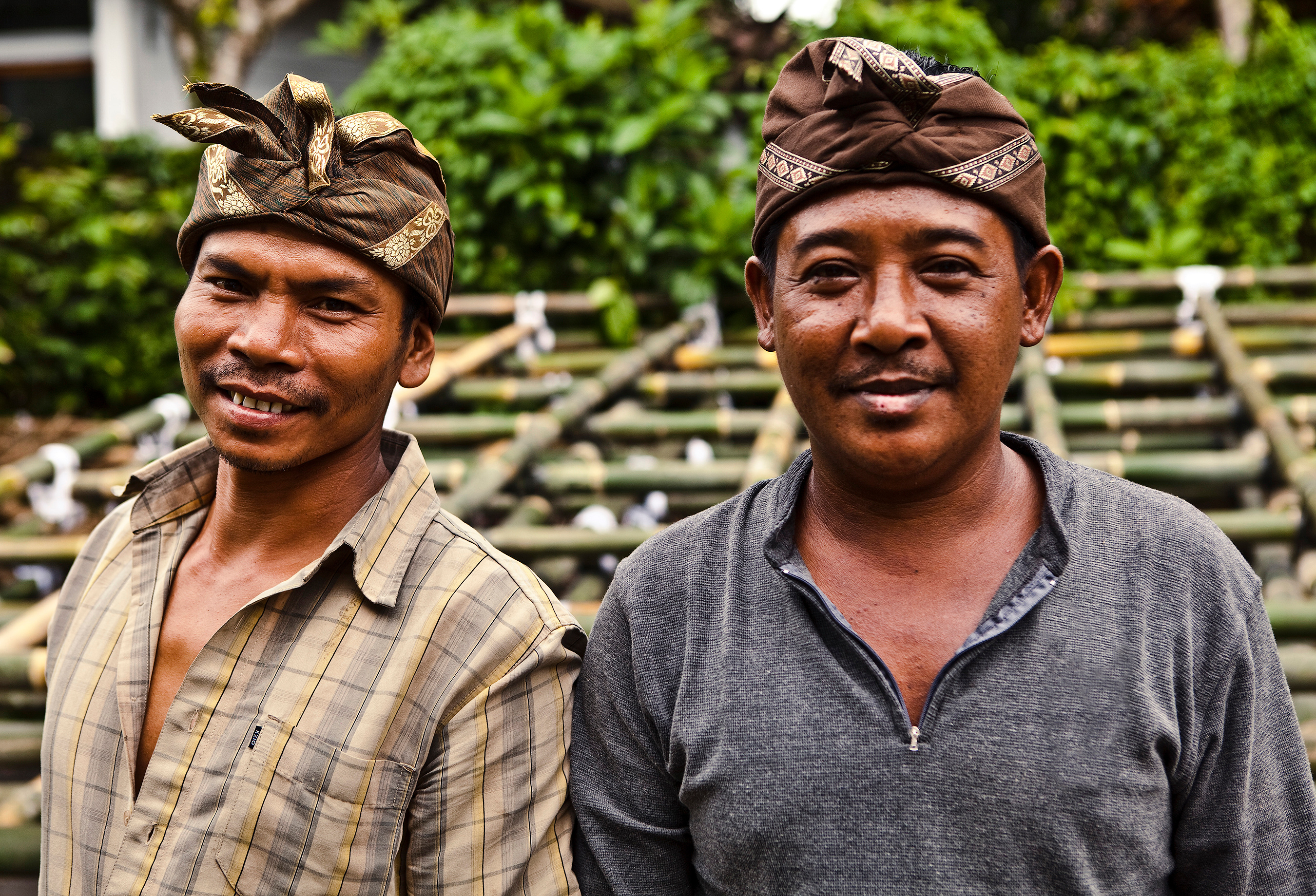
Every male of age is considered an heir, resulting
in property being divided among them. Upon marriage, each son receives separate
quarters where he, his wife, and children will reside. These living
arrangements vary, ranging from a room in a shared house to a separate dwelling
within a family compound. Wealthier families may even gift sons with separate
land and homes. Regardless of living situation, it's customary for at least one
son to remain with the parents to care for the family temple.
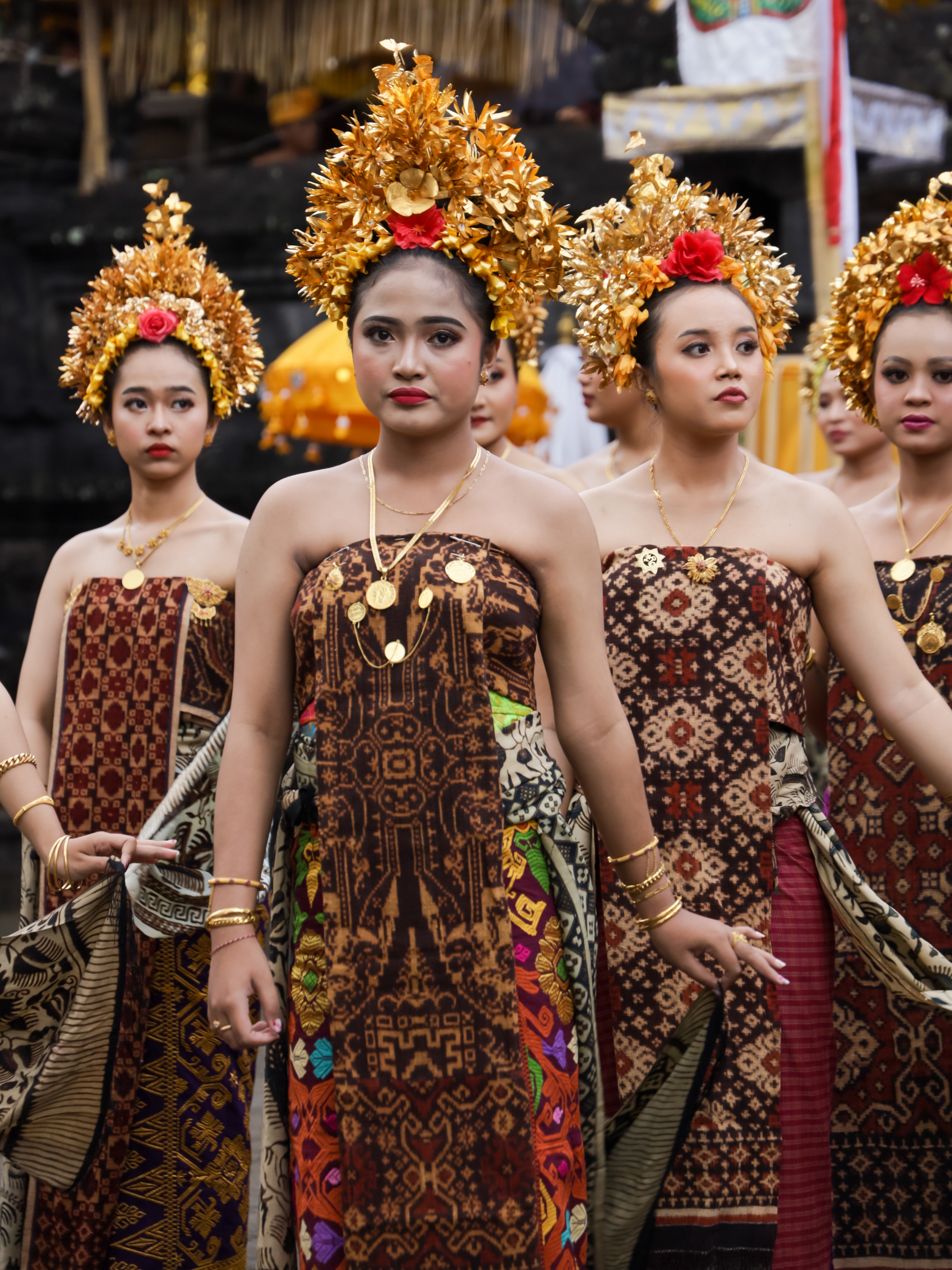
In contrast, girls leave their parental home upon
marriage and become associated with their husband's family. However, they still
maintain connections to their birth family, and some families provide financial
support or even land and property. Additionally, married daughters are still
involved in family ceremonies and may pray at the family temple during
designated times.
8. What happens if a family lacks sons to inherit
property?
Families may choose to adopt a son, typically a
male relative or one of their daughters' husbands.
This is a sensitive process, as the birth family of
the adoptive son must consent to it, and families aren’t usually happy to part
with their sons (read to the end to find out why).
Yet, practical considerations sometimes prompt
families to agree to such arrangements. For instance, if a family has numerous
sons but insufficient property to distribute among them, they might agree to
having one of their sons adopted in this way.
Post-adoption, the adopted son becomes affiliated
with the caste and family temple of his adoptive family, relinquishing ties to
those assigned to him by birth.
This practice highlights the complex dynamics
surrounding inheritance and familial obligations in Balinese society.

9. Is it true that the Balinese are
polygamous?
Traditionally, yes.
Polygamy was once widespread in Bali, but nowadays
it's less common due to practical concerns like the financial burden. However,
some affluent individuals still maintain multiple marriages.
Another change in this respect is the shift in
women’s rights. With many women now actively contributing to the family income,
they possess a stronger position regarding their rights compared to the past
when men were the primary providers.
As for the women’s attitudes towards polygamy, the
following story illustrates that it was never welcomed by the Balinese women. A
Balinese man in his 50s, recounts that, upon learning of her husband's
intention to marry a second wife, his grandmother left him, taking their
children with her.
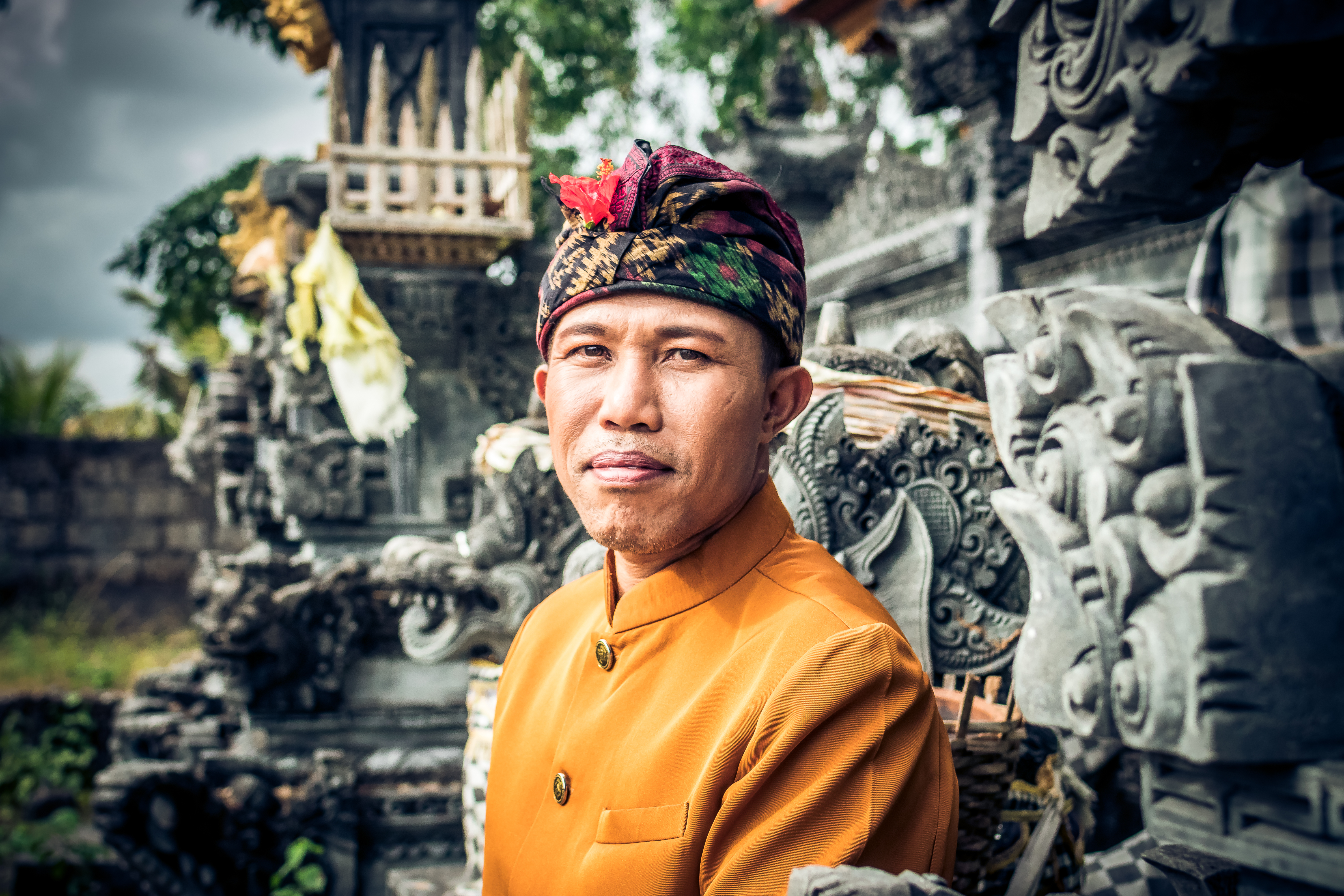
10. Is it true that children typically stay with
their fathers after divorce?
Yes, it’s true.
In Balinese tradition, children, particularly sons,
hold a significant role in preserving family traditions and managing temple
duties. Hence, the goal is to maintain their bond with their paternal
lineage.
As a result, it's common for children to remain
with their fathers after divorce. However, practical circumstances may
necessitate arrangements where paternal grandparents or female relatives assume
caregiving responsibilities. Although instances exist where mothers raise their
children post-divorce, the children still maintain official ties and
inheritance rights within their father's family.
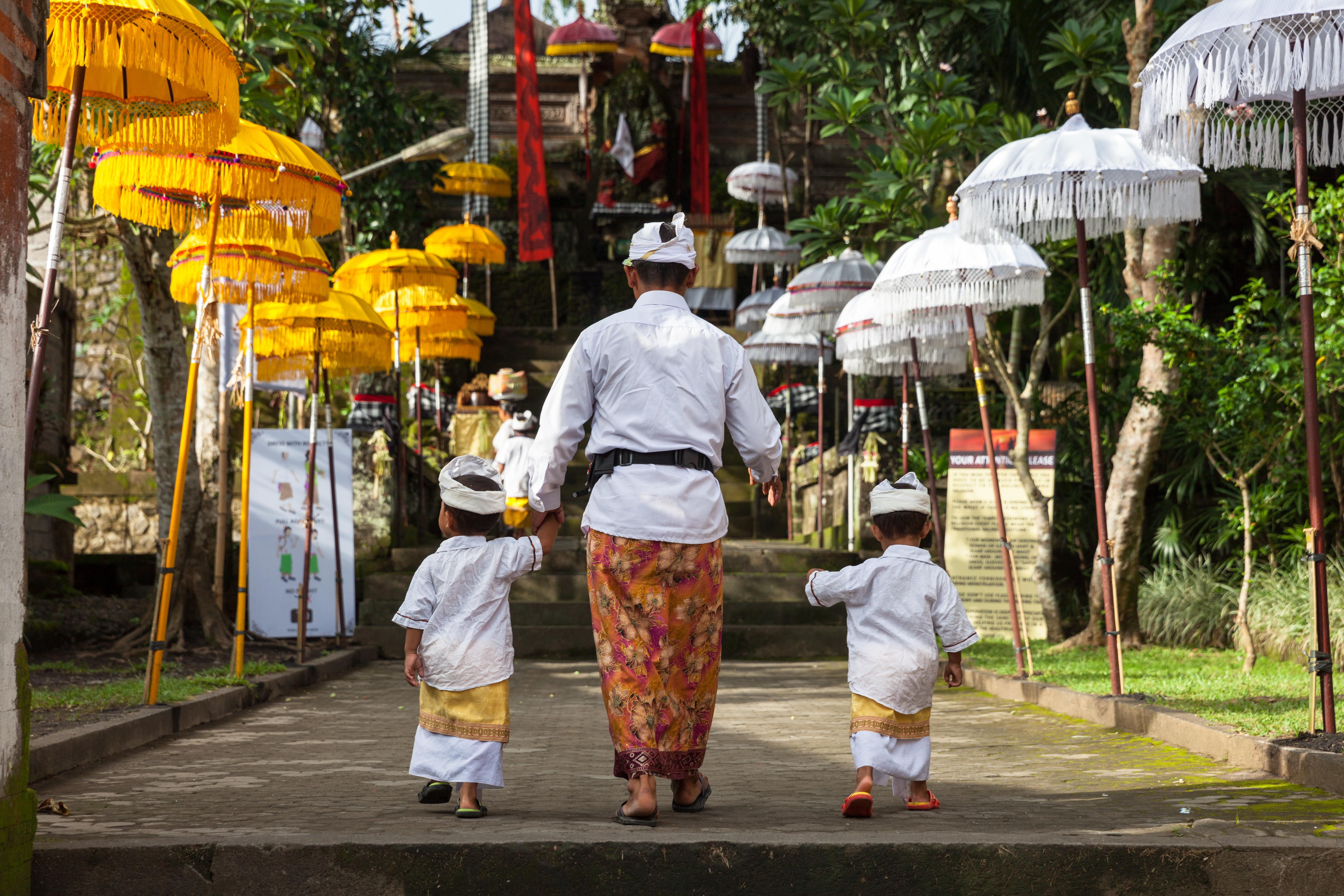
Have we missed any burning questions? Feel free to
ask in the comments section!
You can add one right now!